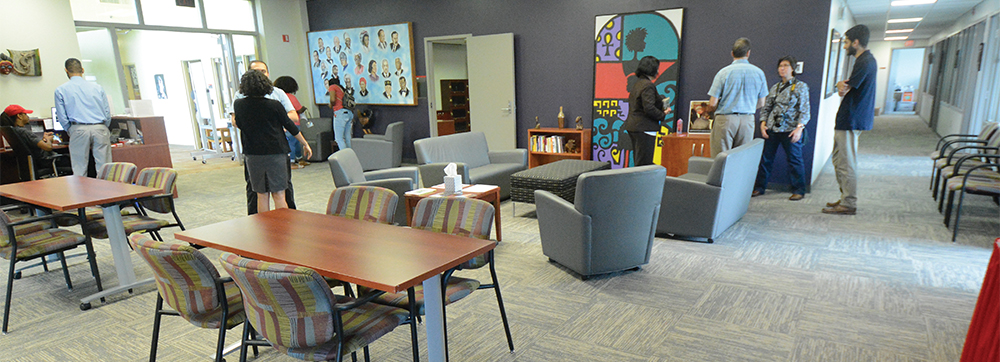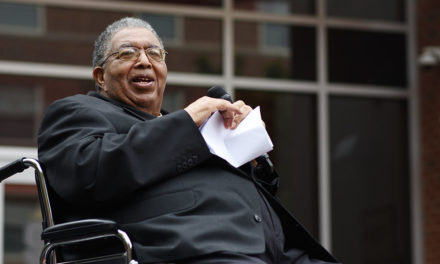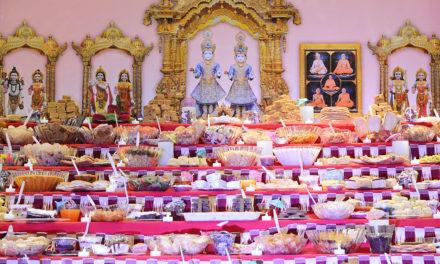Yesenia Jones | Editor-In-Chief
As generations of NC State students have come and gone, the African-American Cultural Center (AACC) has remained a consistent stronghold for the Black community on Campus. The Nubian Message sat down with Interim Director, Sachelle Ford, and Programming Coordinator, John Miller IV to discuss upcoming community events and updates on this campus staple.
NM: What events can students look forward to this Fall?
Miller: What’s on The Table starts on Friday. It’s one of our signature programs. If you’ve ever been to one it’s really like an intergenerational conversation. Just about life and allowing everyone to come into the space and share everything from how Beyonce, though the triple threat that she is, can’t act. All the way to Jay-Z and the NFL, to things that are happening on this campus and the Israel-Palestine conflict. Everyone brings in their expertise in a power-neutral environment. Vulnerability too.
Ford: One of the most powerful things about that space is people really being vulnerable…
Miller: And humanity while still having the practice of centering Blackness. But then again it’s still open to everybody. Then we have the gallery exhibit. We have a new exhibit that was just installed downstairs called “Mental State.” The artist is Telvin Wallace. He is a recent Central [North Carolina Central University] grad and an amazing artist. His work is about mental health within society that affects Blackness. It really focuses on his mental health experiences… he will be giving an artist talk on Aug. 29 in the gallery.
Ford: On Aug. 27 we have a faculty fellowship presentation by Derek Ham, Ph.D., of the design school. His talk is called “Can Virtual Reality Cure Racism?” He worked on the “I Am a Man” exhibit with us last year. He’s also been approached by different groups. A church in Virginia and the Raleigh Police Department… asked can we use your immersive experience to help train and teach what the experience of belonging to a marginalized community is like. It’s really asking can VR experience allow people to step into each other’s shoes and can it do something about working on race relations? Can it do something about empathy? That’s the first of four faculty fellowship presentation coming up this semester.
Miller: Harambee is on Sept. 5. Harambee is Swahili for let us come together. It’s been happening on campus for decades at this point. And letting the folks, especially new faculty, staff and students. But really being open to everybody to come in and learn who their network is and what their networks are. Being able to get to know about what the community has to offer as far as resources. Not only where those resources are on-campus but how can I actually get connected to those resources… We can all come together and center our humanity. Center our Blackness. Learn more about the history of NC State. That is the kickoff of us embodying our theme for the year. Our theme for the year is Stories of Home: Telling and Retelling Narratives of Blackness Locally and Globally. Being able to focus on what is home will hopefully further position the Cultural Center as a home for students, faculty and staff. This being your home away from home.
Ford: It’s an opportunity for us throughout the year, in all of our programming. You’ll see this in the gallery with the local artists. You’ll see this in aspects of the film series. You’ll see it in the way we are pushing the MLK celebration this year. We are partnering with the scholar in residence, Jason Miller, Ph.D., who is examining Dr. Martin Luther King’s trip to Raleigh and the way he was received here. This is an opportunity for us to examine Raleigh and North Carolina. And even the Southeast and understanding the specificity of this region and its history. Learning about legacies of the past and how they materialize and manifest for NC State students today is one of the ways we are thinking about home.
NM: What changes have you seen with students utilizing the space since it was renovated last academic school year?
Ford: I think one of the biggest things we hear from students now that the space has been renovated is that it’s much more welcoming. They enjoy being here and feel at home here. I also think we are intentional about making it a space in which students can understand how much we value them. In terms of the structure of this space, having that wall come down means that we have this open living room. That is huge for What’s On The Table. What’s On The Table has really grown. Now we’ll set up the entire living area around the whole perimeter for What’s On The Table. Last year when the wall came down, we had the first Faculty and Grad Student Mixer and we held about 80 people up here which we could have never done before the renovation. So it allows us to engage more with the community. To have the community come out in large numbers. To be able to do things and see each other during events without a big structure in the way.
This room [Witherspoon 356] was key also. This room was utilized heavily last semester by DeLeon Gray, Ph.D., who every Wednesday brought his Ischolar research team. They held their lab/team meetings here on Wednesday’s. It’s cool to be able to devote space to Black scholarship. Also for our student’s to see Black Scholarship happening in the center. To see a team lead by a Black faculty member leading a team of oftentimes Black graduate students and resources for the Black Community.
Ford: Residential executive board meetings happen here too. So we support Black leadership on campus through that.
Miller: We have people who come and use this as a study space. We have people who come to practice presentations. This really becomes a more open space. It’s now reservable. So you can reserve it like available space. We were able to open this center up as more functional space.
Ford: We are going to open up the library too. So the library will be reservable now as well.
Miller: You can find the reservation system online through our website
NM: For the new students that are coming in, how do you hope they will receive the AACC?
Miller: Hopefully they will come in and see this as a place for learning, a place for rest and a place for joy. This place has always been a place for people to rest. I think there is a human element here. You can learn to understand that you are a scholar and hopefully what you take in here, you take out to the rest of the world.
Ford: Come when you’re feeling great, come when you’re feeling like a hot mess. We see you and we see your humanity.





